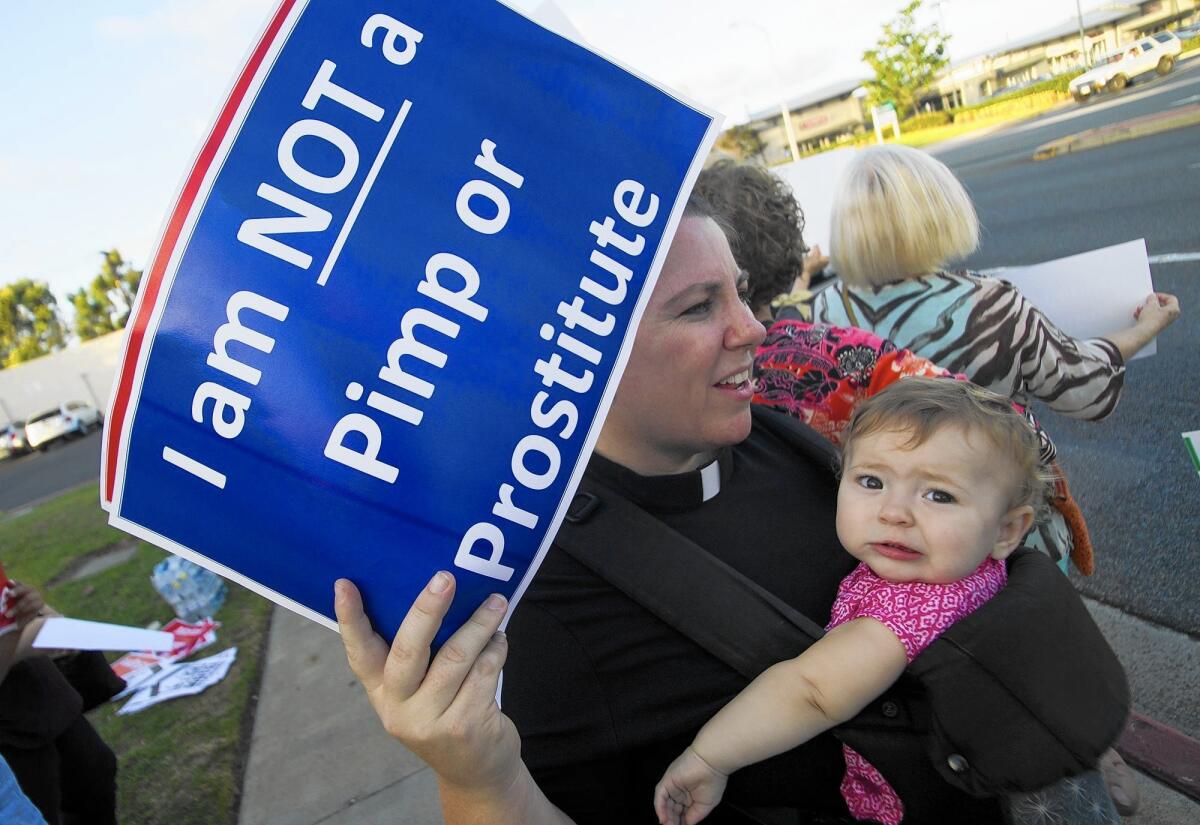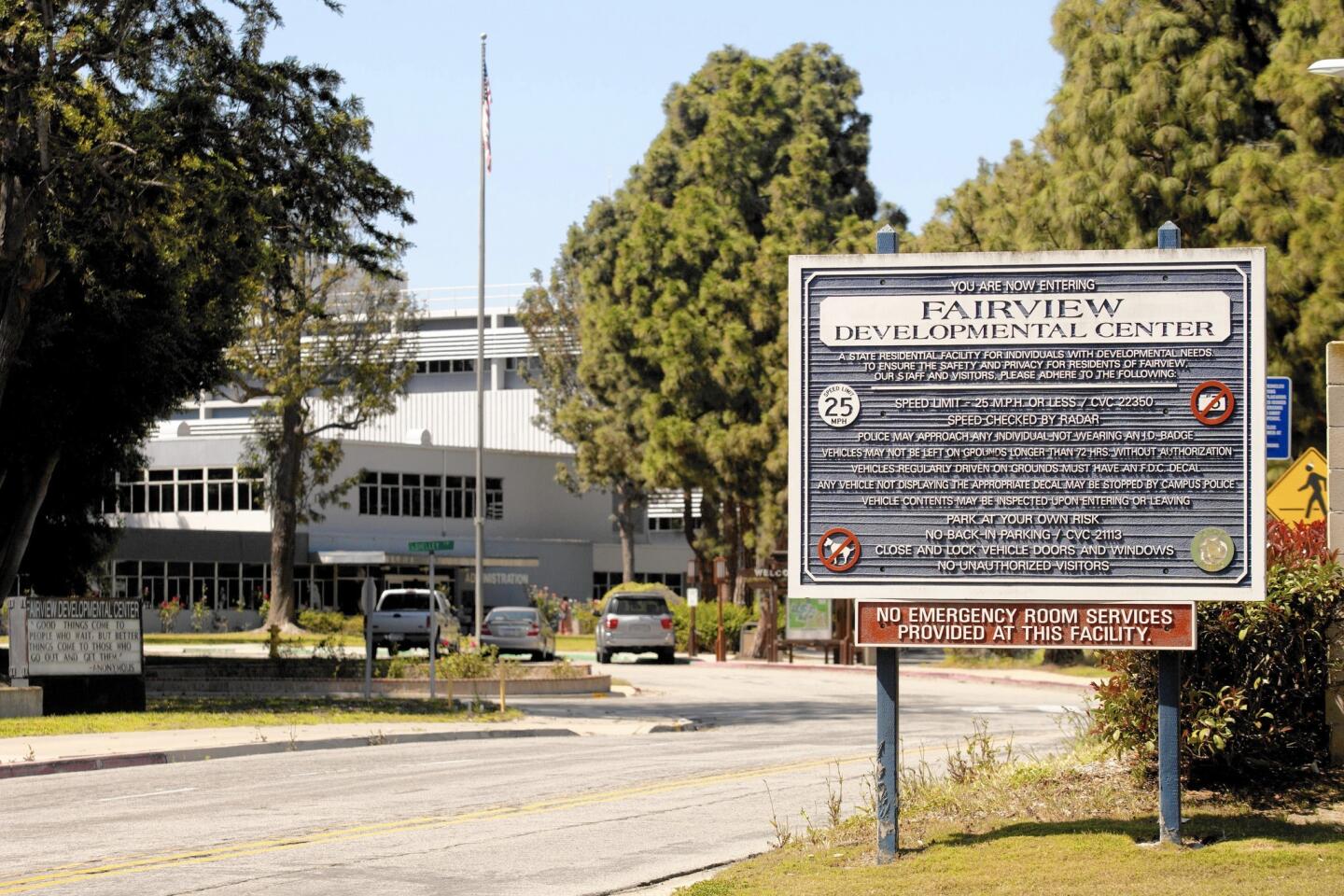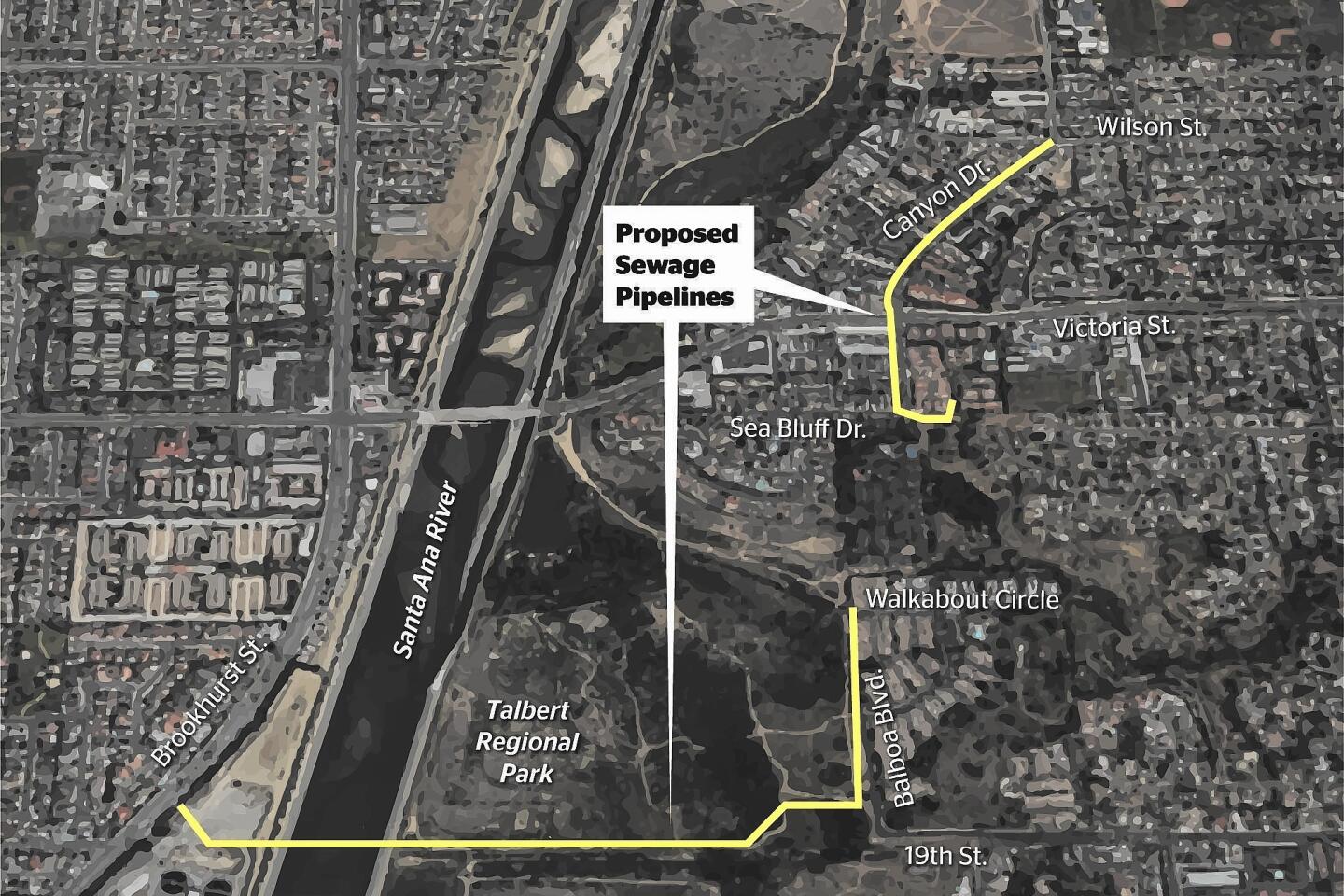Medical pot, fairy shrimp and ‘motel refugees’: Here’s what topped the news in 2015 in Costa Mesa

News stories that grabbed attention and headlines for Costa Mesa in 2015 often were the results of years-long sagas that finally came to a head. Others were outright new. One didn’t even take place in Costa Mesa, but people here had plenty to say about it.
Here are the Daily Pilot’s top news stories for 2015 in Costa Mesa, listed in reverse chronological order. Read about the top business stories in an accompanying article. Crime and education stories will be covered in upcoming articles.
*
Billboard disputes in … Fountain Valley?
One of the biggest stories affecting Costa Mesa actually didn’t take place in the city, but across the Santa Ana River in Fountain Valley.
A city-owned parcel near Euclid Street and Ellis Avenue is the potential site for a 65-foot, light-emitting diode advertising sign by advertising giant Clear Channel Outdoor — much to the dismay of State Streets residents in northwest Costa Mesa and some Fountain Valley residents.
The matter was postponed three times this year, the latest in December at the request of Clear Channel.
*
Sober-living lawsuits
The proliferation of the sober-living industry in Costa Mesa took some twists and turns in court throughout 2015. At first, Costa Mesa was winning in federal court on one of the lawsuits, filed by Solid Landings Behavioral Health, which alleged that the city’s regulatory ordinance on sober-living houses in single-family neighborhoods was discriminatory.
A judge twice dismissed the case in 2015, but then a higher appellate court in December granted a motion for injunctive relief. What that meant was that City Hall could not enforce its ordinance until the case is settled.
*
New library plan gets OK
The City Council gave preliminary approval to demolish the Neighborhood Community Center and build a new 20,000-square-foot central library in Lions Park, for an estimated cost of $34.5 million.
The new library — potential opening date set for 2018 — would replace the Donald Dungan library branch, which would be used as a meeting space to replace the lost community center.
*
Motor Inn, apartments and ‘motel refugees’ protests
The City Council approved plans to demolish the Costa Mesa Motor Inn, a 236-room motel, and replace it with 224 high-end apartments.
Some saw the move as a welcome change to replace a blighted Harbor Boulevard property where police are a constant presence. Others saw it as attacking the poor who rely on the motel as last-resort housing. Those protesters staged rallies against the plans, one of them in front of the Motor Inn, whose residents will be “motel refugees” once the business closes, they said.
*
Fairview center closure?
The Fairview Developmental Center made the news several times in 2015, one of which was the City Council backing the possibility for 500 new homes for the 114-acre, state-owned property off Harbor Boulevard.
The council’s decision was preliminary, something incorporated into the city’s General Plan update and dependent upon the center’s proposed closure in a few years.
Gov. Jerry Brown also signed a bill in June that would allow the center, after its closing, to contain new housing units for the developmentally disabled who can live independently.
*
Marijuana lawsuits
Costa Mesa faced some lawsuits after the City Council voted to put some proposals that would legalize medical marijuana dispensaries on the November 2016 ballot, instead of a special election ballot sometime this year.
The last of those cases was dropped by the plaintiff, Fullerton attorney Randall Longwith, in the fall.
*
Development in the hot seat
Costa Mesa First, a political action group, filed a petition with City Hall that seeks to bring approval or denial of new “major” developments directly before voters instead of just the City Council.
It was primarily drafted in response to the city’s surge of new development, particularly residential, that needed zoning changes or other exemptions from the council to get approved and built.
“The initiative is basically trying to get control of the increased development and therefore the increased impacts on our living community — the traffic, the noise, the infrastructure impacts,” said Jay Humphrey, a Costa Mesa First member and former councilman.
If it gets enough verified signatures, it will be on Costa Mesa’s general election ballot in November.
*
Employee lawsuit concludes
A lawsuit filed by Costa Mesa’s municipal employee union ended in June with a settlement, ending more than four years of legal battles.
The Costa Mesa City Employees Assn.’s case contested the City Council’s 2011 outsourcing attempt that could have led to more than 200 city employees being laid off. In the end, the association received $375,000 to pay back legal fees and employees got a 4% pay boost.
“This was an emotional battle,” Mayor Pro Tem Jim Righeimer said at the time. “We’ve had a lot of issues between the council and general employees. It’s absolutely time to move on.”
*
Fairview Park trails, fairy shrimp and federal charges
The U.S. Attorney’s office received a report from wildlife investigators regarding unpermitted work in Fairview Park that damaged the habitat of an endangered species that lives there, the San Diego fairy shrimp.
Federal prosecutors could file charges on the matter, which originally occurred in summer 2013. So far, fallout of the act includes Costa Mesa taxpayers paying more than $100,000 in cleanup and legal fees.
*
Moving the sewage
A large sewage pipeline involving the Costa Mesa Sanitary District received a quiet approval in March that, once construction begins, will significantly disrupt the Westside and close a portion of Talbert Regional Park.
The estimated $23-million public-works project aims to establish a more reliable sewage system, but to do so it will need a new pipe built into city streets and Talbert park. Environmentalists contested the plans. Many neighbors likely remain unaware of what’s ahead.







